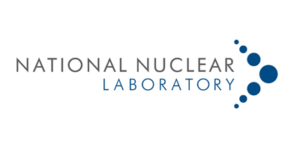Wednesday 29 November 2023
Strengthening nuclear development through Franco-British R&D cooperation between CEA and NNL
CEA and NNL will strengthen their collaboration efforts to progress nuclear development to support transition to zero-carbon energy sources.
Against a backdrop of tackling climate change and accelerating the energy transition, world governments, including in France and the UK, have set ambitious targets to achieve net zero by 2050. Success relies on transforming the energy sector from fossil-based to zero-carbon sources. Nuclear energy – a proven zero-carbon energy source – working alongside renewable energy sources, is an important element of this energy transition.
Recent updates to the International Energy Agency (IEA) net zero emissions scenario sees a greater role for nuclear in attaining net zero by 2050. Whilst the IEA sees nuclear energy capacity more than doubling between 2022 and 2050, there are specific challenges that need to be addressed. These include long-term operation of existing facilities, construction of new nuclear power plants and the development of new innovative uses for nuclear energy.
Both France and the UK have been at the forefront of nuclear energy development since the 1940s, working across the full spectrum of the fuel cycle and operating successive generations of reactors. The French and British Governments, through their respective energy policies, have both announced the launch of new small and large-scale nuclear projects to increase nuclear generating capacity within the context of achieving net zero. This has reaffirmed the importance of Research and Technology Organisations (RTOs), notably the French Alternative Energies and Atomic Energy Commission (CEA) and the UK’s National Nuclear Laboratory (NNL) in supporting the delivery of their respective nation’s energy policies.
The framework document agreed by CEA and NNL highlights how these national R&D organisations, working in collaboration, can strengthen their role in the development of nuclear energy, cementing its vital position in a zero-carbon integrated energy system of the future.
CEA and NNL, national R&D organisations in support of government policies for nuclear energy
Maximising the potential for nuclear energy to contribute to our net zero ambitions will require commitment and significant investment to accelerate underlying research, development and demonstration (RD&D). Innovations can optimise the manufacture and deployment of smaller reactors. RD&D is needed to expand the role of nuclear energy in support of decarbonising hard to abate areas of our economies where electrification cannot easily penetrate, through direct provision of high-grade heat, or through hydrogen or synthetic fuel production.
RTOs and national laboratories are key to advancing knowledge, promoting innovation and enabling research, development and demonstration activities. They hold a distinct place between academia and industry, with strong links into government. They are often used to effectively manage collaborative research projects through fostering relationships and partnerships, all enabled through their unique infrastructure and talent.
CEA and NNL, are both renowned players in the nuclear sector. Their mission is to focus on cutting-edge science and technology to solve some of society’s most complex challenges, and to accelerate the development of high-level technical skills needed by industry. Their activities extend to the development of an integrated energy system vision, in which nuclear energy plays a strategic role. They look to society, listen to its needs, and engage the debate, providing governments from both countries with strategic advice based on solid scientific and technical expertise.
In this framework, CEA and NNL attach great importance to national and international collaborations, both academic and industrial. Their shared ambition is to enlighten leaders and decision-makers on the strategic and technical aspects of energy decisions and to help accelerate the deployment of innovative nuclear and energy solutions in both countries.
Building on a solid existing base, CEA and NNL will strengthen their collaboration efforts through a resolutely future-oriented approach
CEA and NNL have long collaborated in the field of nuclear R&D through various programmes (including EU projects, European research platforms, GIF, OECD/NEA, IAEA and bilateral collaborations) on subjects such as safety and security, waste management, fuels and decommissioning.
They will build on this, expand collaboration with a focus on integrating nuclear energy into future low-carbon energy systems. Our strengthened collaboration aims to deliver shared actions in the following areas:
- Undertake joint scientific and technical work to support the operation and subsequent decommissioning of nuclear facilities.
- Facilitate future nuclear innovation by conducting R&D activities for the development of new technologies in reactors and the fuel cycle, as well as waste management.
- Carry out the demonstration phases of technical innovations for the benefit of France and the UK.
- Share lessons learned from the operation of infrastructure and equipment, by promoting access to experimental facilities and critical nuclear R&D infrastructure.
- Promote the interests of nuclear fission by combining our strategic visions, contributing to the development of nuclear and energy policies, and coordinating actions to listen to and communicate with the public.
- Collaborate to strengthen nuclear skills programmes in France and the UK to develop the requisite expertise needed by research and industry:
- Develop multidisciplinary knowledge
- Train and retain a talented, skilled workforce
- Disseminate our scientific and technical knowledge as openly as possible
CEA and NNL share an ambition to act as catalysts for change in the low-carbon energy transition. Research bodies and national laboratories can play their part, providing a strong and sound scientific basis to decision makers through using existing infrastructure and expertise, thereby supporting policy decision making in nuclear reactors and fuel cycle issues. It is with an acute awareness of the urgent need to act and innovate to address the impact of climate change that our two organisations wish to strengthen our already fruitful scientific collaboration.

